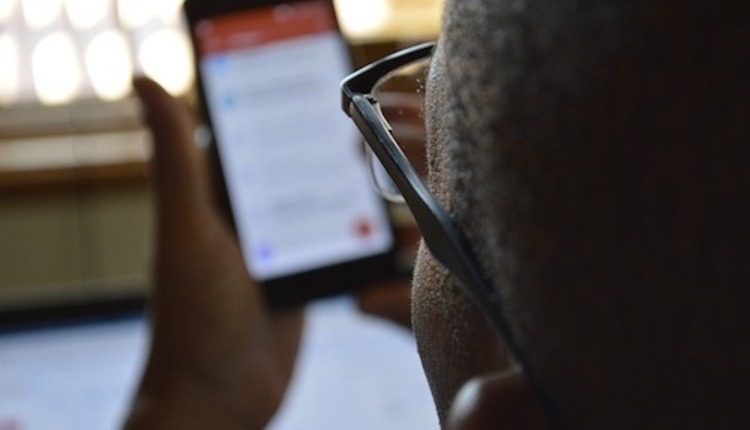"I'll start tomorrow; if I am strict enough and hard enough on myself, maybe I'll change; I don't trust myself with food, so I have to keep dieting." If you're like most fitness and wellness professionals, you've probably heard these self-defeating statements and many more from your clients. There's no doubt about it — people are in a lot of pain over their excess weight and their battles with food. Unfortunately, most fitness professionals are not only ill-equipped to deal with this all-too-common phenomenon, but often contribute to the problem by simply putting their clients on diets, without offering any of the essential tools for success. But what if there was a way for you to open your clients' eyes to a new, different relationship with food, changing them from chronic dieters to contented eaters who settle at their natural weight?
A New Path
Over the course of my own fitness career, like so many fitness professionals out there, I have tried to encourage my clients to be more conscientious with their eating habits. But often, I ended up frustrated with my clients' unrelenting commitment to the dieting lifestyle, which kept them stuck in the land of the overweight. It was only when I introduced myself to a coaching program called Intuitive Eating (IE) that I finally found the tools to teach my clients the truth about our relationship to food: life is not a diet. To put it simply, the mission of IE is to give people back their power as "the Eater" after all the deprivation diets they've been on. IE is a specifically structured program that utilizes teaching tools to pull your clients out of their dieting misery and to help them settle at their natural weight.The Dieting Challenge
The bottom line is hunger always wins over willpower. And due to diets involving restriction and deprivation, they are, most likely, painful. Let's face it, if diets worked, everyone would be skinny! Often, dieters do not trust themselves to make decisions about when and what to eat, thus, turning to the latest diet books for direction. For a dieter, food is viewed as a battle, so it's no surprise that diets have a 98% failure rate as dieters cycle on and off various diets, losing and regaining weight, while their self-esteem spirals downward. So, as health and fitness professionals, it is helpful to explain to our clients that they did not fail at their diets — the diets failed them. The fact is that deprivation and restriction are terribly unnatural, so of course people give up! In fact, the harder a client strains to restrict and deprive himself or herself, the harder he or she will "backlash binge" simply because humans weren't designed to live that way. There is a neurological pathway that exists in every human's mind, consisting of four distinct steps. Thoughts ("Look at the cellulite on my thighs!") lead to feelings ("I feel like a fat pig."), which lead to beliefs ("I was meant to be fat."), which ultimately lead to behaviors (burying ugly emotions in a pint of ice cream).Diet plans only focus on behavior change, the final step in the neurological pathway, advising the dieter to adhere to a (relatively short) list of "good" foods and to avoid a (much lengthier) list of "bad" foods. However, this practice inevitably ends in attrition because it fails to address the three prior steps in the neurological pathway: thoughts, feelings and beliefs. And so, it is not possible to permanently change behavior by merely focusing on behavior. "Dieting is not just about eating — it is an entire way of life, and life has a very different meaning for people when they become dieters," warns Janet Polivy, Ph.D., a professor of psychology and psychiatry at the University of Toronto. "Their self-image and self-esteem become tied up in the process." For this reason, dieters are driven by their subconscious to meet their emotional needs, especially when deprivation is present. That being the case, dieters report extreme feelings of isolation and low self-esteem. It is through the coaching program, IE, that rightly focuses on identifying thoughts ("My spouse doesn't pay attention to me."), so as to acc-urately address feelings ("I feel out of control."), which allows active shaping of beliefs ("We could use some regular downtime to reconnect."), which prompts mindful behavior ("I'm not actually hungry, so I'll wait to eat later.")
The Intuitive Eating Way
Since deprivation and restriction do not exist in the IE world, clients will feel liberated, knowing they will no longer need to depend on diets again. No longer will your clients feel like they have to repeatedly start all over at the end of the "learning line," which is essentially what dieters do every time they swing to the backlash-binge side of the dieting arc — by vowing to try another diet, they effectively assume their place at the back of the line.
IE allows clients to get back in touch with their physical feelings, as well as their emotional needs, by encouraging them to mindfully choose regular, everyday foods that satisfy their immediate physical hunger and esthetic preferences, fuel them for the length of time they wish to be fueled and give them a sense of pride in their power to make these choices on their own. Intuitive eaters know they can have any food they desire because they are taught how to incorporate their esthetic desires into mindful meals that honor their hunger and respect their fullness, while nourishing their physical and emotional being. With practice, this will become second nature to your clients, resulting in losing excess weight — painlessly.
Overcoming the Diet Culture's Messages
Since our present-day culture has succumbed to the all-or-none view of eating behavior, which assumes that everybody is either on a diet or has fallen off the wagon, IE coaches have a big knot to unravel. Dieters use a peculiar language and don't even know it, so fitness professionals must be very careful not to join them in the use of insidious statements, assumptions and self-deprecation. It isn't easy, but each day as we go about our appointments, there are endless opportunities to serve as great role models and reshape our clients' way of thinking about food and body shape. When your clients sigh, "Usually, I'm a really good dieter, but this time, I just can't get motivated to do it," you can take advantage of this opportunity to ask powerful questions that will get them to examine why they would want to diet again if it was so laborious.The Word Game: It Means Something
When your client laments, "I ate too many brownies at the bake sale this weekend, so I ran twice as long on the treadmill," you can stop him or her with a powerful question: "How did that feel to have to spend so much time on your exercise session?" This response does not condone nor condemn the behavior but rather, gets your client to think about how the dieter's mentality causes unreasonable strain in his or her life. If a client says, "I was really good at lunch yesterday, but then I totally blew it at dinner," you can intervene by commenting, "That's interesting because to me, you're always good." This remark is a subtle reminder that his or her eating behavior has nothing to do with whether or not he or she is a "good" person.Tools for Thought
One of the first tools that is taught with IE is called the Hunger Scale, a spectrum of physical sensations numbered from zero to 10. This allows clients to get back in touch with their physical selves so they come to trust themselves again instead of relinquishing their intuitive power to diet books and gurus. Utilizing a food journal provides valuable information about which meals are working and which are not. A meal has "worked" if it gives your clients physical and emotional satiation, fueled them for the length of time they wished to be fueled and gave them a sense of pride in the choices they made. As the Hunger Scale is utilized on the same page as the clients' food journal, it enlightens clients on the connection between food and mood. It is important to comb through clients' examples of meals they've eaten and recorded, discussing how they felt physically and emotionally before and after each meal.One of the key questions IE coaches ask their clients is, "Does that thought honor you?" When a person claims that he or she has a naturally slow metabolism, or that his or her kids' schedule precludes him or her from taking care of himself or herself, it is paramount that you ask whether those thoughts honor your client. If what is said is really true, then there's no point in even trying to help clients lose weight or get healthier, as this is essentially a victim attitude. IE coaches teach clients to reject the victim mentality so they can move forward.
Overhauling the Landscape
Those who are intuitive eaters often state that for the first time in their lives, they're feeling really good after each meal. No more guilt. No more beating themselves up and feeling like a failure. So perhaps in the future, IE will be a required component of any training certification. If enough fitness coaches become proficient in the concepts of IE, the landscape of the diet world just might stand a chance of rehabilitation after all.
Tiffany Crate, MS, CPT, has been repeatedly quoted in numerous publications for her fitness and lifestyle expertise. Her articles have been published in the "Strength and Conditioning Journal," "Fitness Trainer Update," "IDEA Fitness Journal" and "Massage Therapy Journal." Tiffany will present on Intuitive Eating this July at World IDEA in San Diego. For more information, email her at tiffany@tlcfitness.net.










